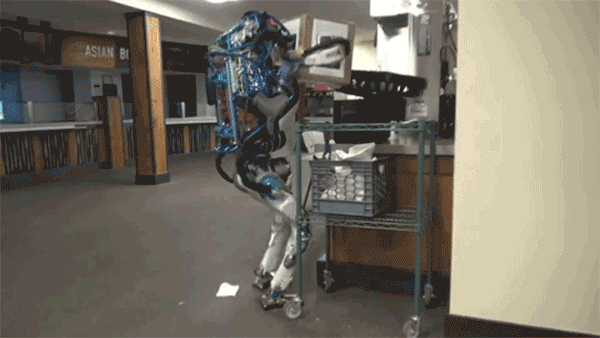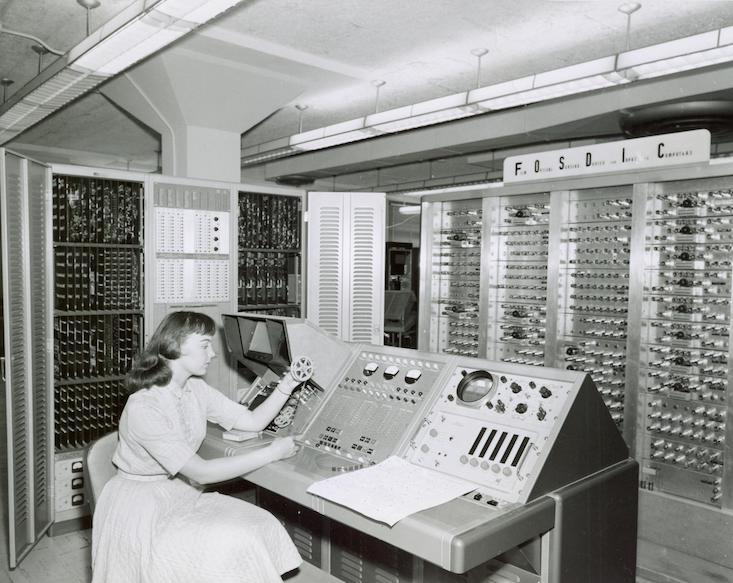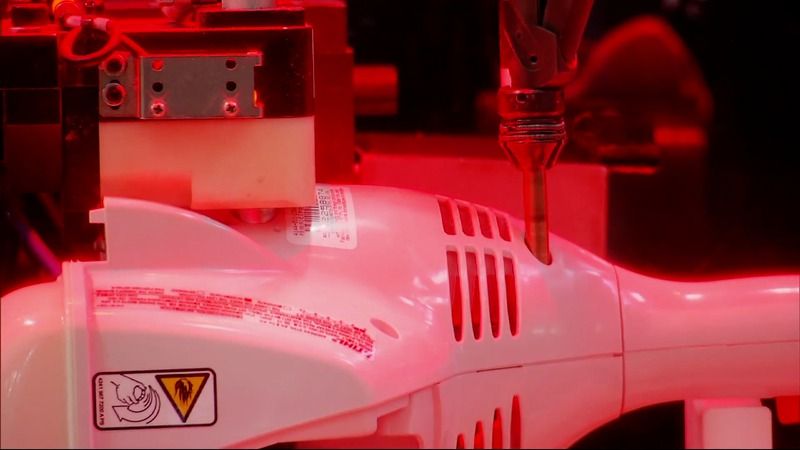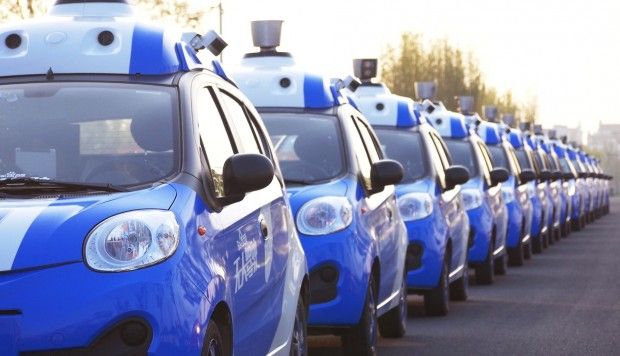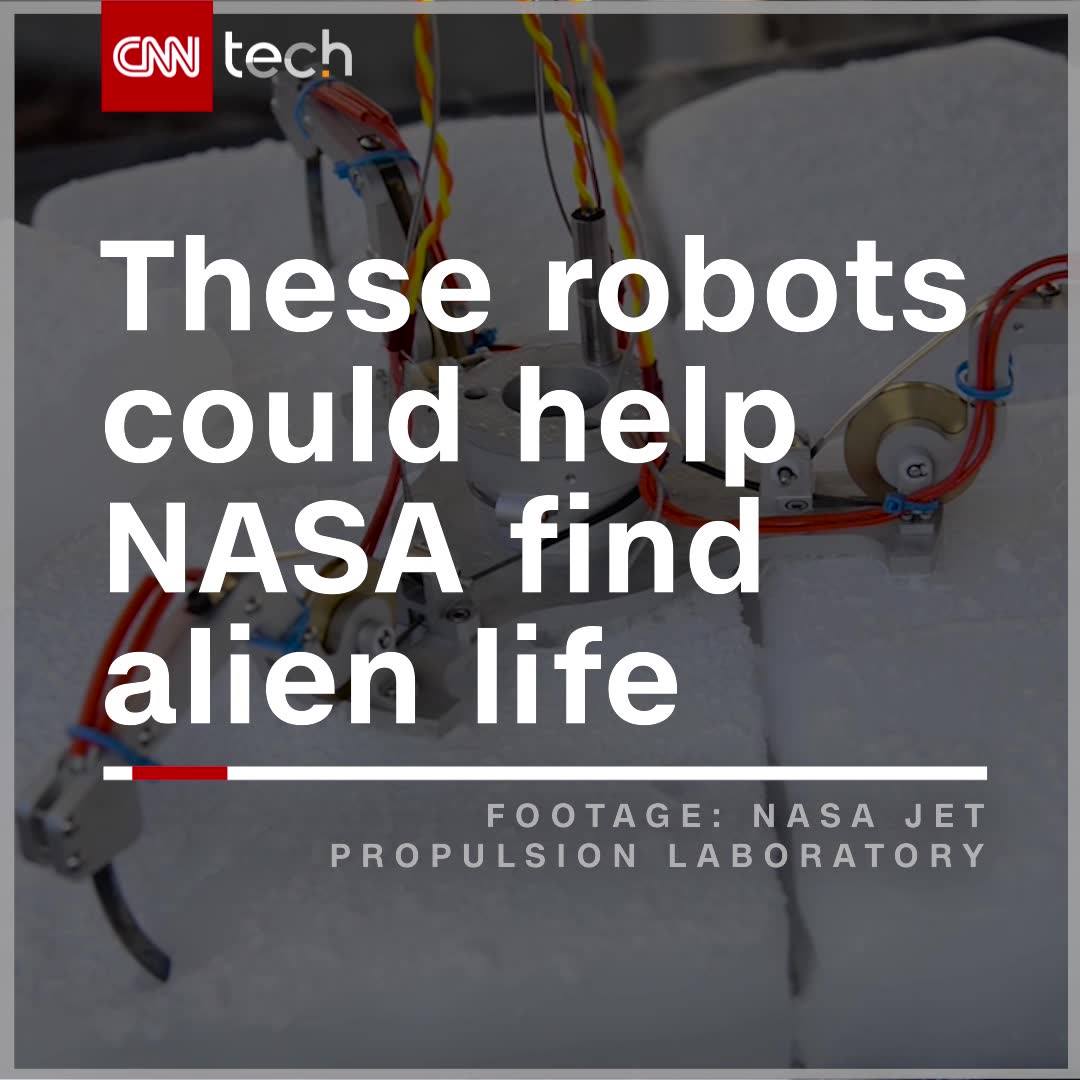“Clean energy purchases projected to reach 80 percent by 2050.”
New clip of ATLAS, having some problems but interesting to see.
If at first you don’t succeed, try again—and, if you’re a robot, again and again and again and again and again and again. Because it’s worth remembering that unlike many humans, automatons will keep at a task until they do achieve success.
This GIF of Boston Dynamics’s Atlas robot taking a tumble, sliced from a TED talk published Monday, has gone viral. Presumably, that’s because when humans aren’t fretting about how they’ll steal our jobs, we sure do seem to enjoy laughing at robots falling over.
But robots are tenacious: failures don’t demoralize them the way they do humans. So you can bet that Atlas carried on trying to nail the task of moving a box for hours, and then shared its learnings with all its buddies so that none of them make the same mistake in the future. (And at any rate, the robot that steals your job is unlikely to be a humanoid.)
“She thought her solution was obvious. Her colleagues, though, were sure their solution was correct—and the two didn’t match. Was the problem with one of their answers, or with the puzzle itself?”
“Alejandro G. Iñárritu’s conceptual virtual reality installation CARNE y ARENA (Virtually present, Physically invisible) explores the human condition of immigrants and refugees.”
“To Systrom, it’s pretty simple: Freedom of speech does not mean the freedom to @&#$post.”
“This paper discusses the physics, engineering and mission architecture relating to a gram-sized interstellar probe propelled by a laser beam. The objectives are to design a fly-by mission to Alpha Centauri with a total mission duration of 50 years travelling at a cruise speed of 0.1c. Furthermore, optical data from the target star system is to be obtained and sent back to the Solar system. The main challenges of such a mission are presented and possible solutions proposed. The results show that by extrapolating from currently existing technology, such a mission would be feasible. The total mass of the proposed spacecraft is 23g and the space-based laser infrastructure has a beam power output of 15GW. Rurther exploration of the laser — spacecraft tradespace and associated technologies are necessary.”
https://arxiv.org/abs/1708.03556
The Associated Press is launching a series of stories called Future of Work that explore how workplaces across the U.S. and the world are being transformed by technology and global pressures. As more employers move, shrink or revamp their work sites, many employees are struggling to adapt. At the same time, workers with in-demand skills or knowledge are benefiting. Advanced training, education or know-how is becoming a required ticket to the 21st-century workplace.
Three Chinese internet majors have set up what is claimed to be the one of the largest open databases for artificial intelligence (AI) in the world, aimed at helping global talent advance AI research by harnessing the huge data pool generated by China’s 750 million internet users.
The platform wants to empower AI researchers and developers to advance their research without constraints of data resources, say its backers.
PUBLISHED : Monday, 14 August, 2017, 5:52pm.
UPDATED : Monday, 14 August, 2017, 5:52pm.

